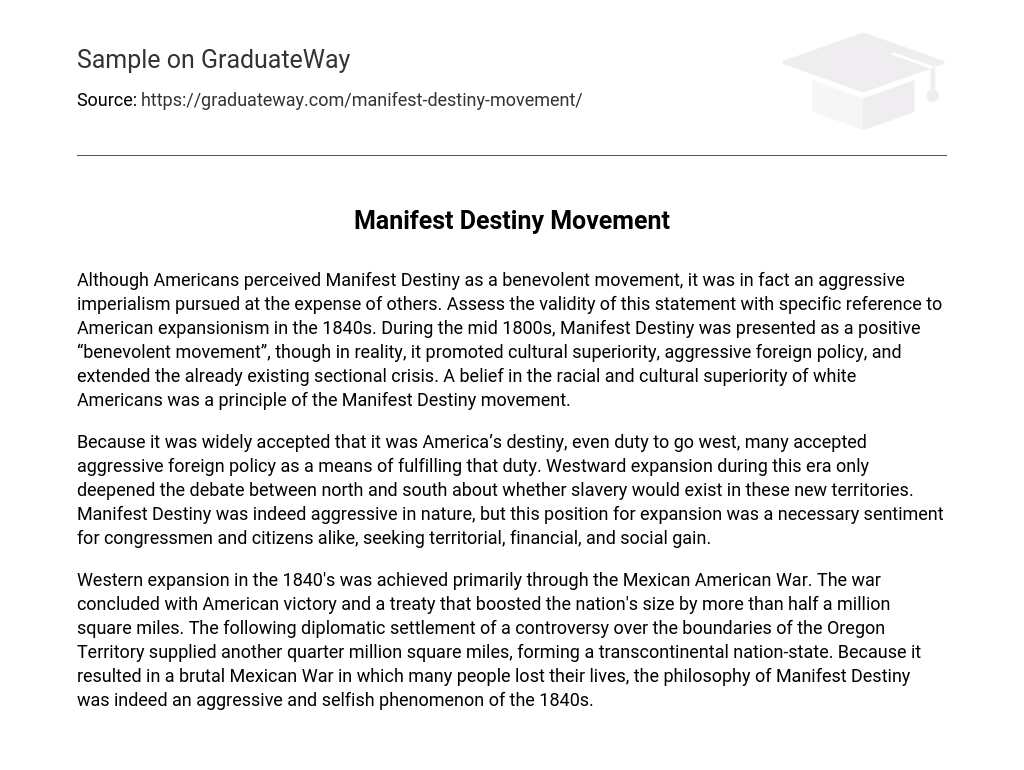Although Americans perceived Manifest Destiny as a benevolent movement, it was in fact an aggressive imperialism pursued at the expense of others. Assess the validity of this statement with specific reference to American expansionism in the 1840s. During the mid 1800s, Manifest Destiny was presented as a positive “benevolent movement”, though in reality, it promoted cultural superiority, aggressive foreign policy, and extended the already existing sectional crisis. A belief in the racial and cultural superiority of white Americans was a principle of the Manifest Destiny movement.
Because it was widely accepted that it was America’s destiny, even duty to go west, many accepted aggressive foreign policy as a means of fulfilling that duty. Westward expansion during this era only deepened the debate between north and south about whether slavery would exist in these new territories. Manifest Destiny was indeed aggressive in nature, but this position for expansion was a necessary sentiment for congressmen and citizens alike, seeking territorial, financial, and social gain.
Western expansion in the 1840’s was achieved primarily through the Mexican American War. The war concluded with American victory and a treaty that boosted the nation’s size by more than half a million square miles. The following diplomatic settlement of a controversy over the boundaries of the Oregon Territory supplied another quarter million square miles, forming a transcontinental nation-state. Because it resulted in a brutal Mexican War in which many people lost their lives, the philosophy of Manifest Destiny was indeed an aggressive and selfish phenomenon of the 1840s.





